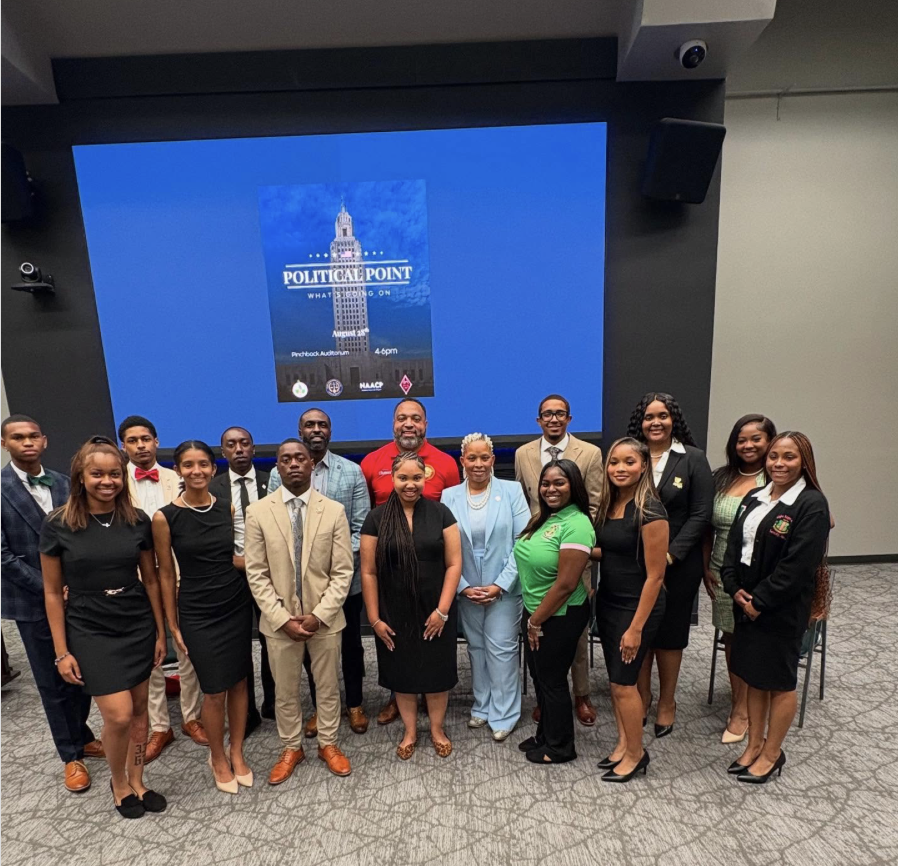NEW ORLEANS – High-profile murder cases fell apart. High-powered prosecutors left. High numbers of cases were dropped altogether.
In the end, it wasn’t just a $3.7 million racial discrimination verdict that did in New Orleans District Attorney Eddie Jordan. His office had become a symbol of utter disarray in the city’s criminal justice system long before that verdict threatened to bankrupt his office and led to Jordan’s resignation Wednesday.
Observers say that although Jordan’s departure is likely to improve things in the DA’s office, it is hardly a total fix.
The verdict is still hanging over the office, morale is said to be low, some of the finest legal talent has left and many of the problems that the DA said prevented him from bringing cases to trial persist, including a lack of cooperation from witnesses and the destruction of evidence by Hurricane Katrina’s floodwaters.
“There’s a lot that needs to be done, and if they can start doing that, that helps the people there who want to do the job properly,” said Harry Tervalon Jr., a prosecutor under Jordan’s predecessor who joined, and left, Jordan’s office over the summer.
Critics of New Orleans’ criminal justice system have long complained that it is a revolving door that often puts violent criminals right back on the streets.
A recent report by the Metropolitan Crime Commission, a watchdog group, questioned the effectiveness of the police and Jordan’s office, saying that in the first half of 2007, half of all violent felony cases handled by the DA’s office, including homicides and rapes, were dropped.
A City Council member called for Jordan’s resignation in July, after he dropped murder charges against a suspect in the killing of five teens. Jordan claimed a witness couldn’t be found, only to have police produce that witness at a news conference the next day. That case was later revived.
Complaints about a lack of basic equipment and little time to investigate and prosecute major cases led several top attorneys recruited for a new violent offenders unit to quit over the summer.
Tervalon, who worked in that unit for five weeks over the summer, said the lack of equipment including no e-mail or access to voice mail made it tough to prepare cases.
Dalton Savwoir, a spokesman for the DA’s office, said attorneys now have computers and desks.
Rafael Goyeneche, president of the Metropolitan Crime Commission, acknowledged Wednesday that some aspects of the office had improved. He cited the establishment of the violent offenders unit and the offering of pay raises to attract new talent.
“That office is not broken up,” he said, adding that there is a core of “experienced, competent prosecutors” doing good work. “People didn’t understand with Jordan there, because they were so fixated on some of the questionable things he did as DA.”
One of the latest questionable things: An armed robbery suspect, a family friend of Jordan’s girlfriend, briefly took shelter in Jordan’s house in mid-October. Jordan had said he didn’t know the man was a criminal suspect until after he had left.
Keva Landrum-Johnson, a veteran prosecutor who will replace Jordan until a new DA is elected, said Tuesday that she will try to adopt some of the best practices from district attorneys’ offices around the country.
“I will insist that all of us entrusted to the district attorney’s office perform with a level of effectiveness and competency that will restore our own pride and the public’s pride in our office,” she said.
Mayor Ray Nagin called Jordan’s resignation “a pivotal day in our quest for full recovery.”
Nevertheless, the plaintiffs in the racial bias case “ultimately have the city and the state in a checkmate position,” Goyeneche said.
The judgment is owed to 36 workers summarily fired by Jordan after he took office in 2003. Virtually all the workers are white and were replaced by black workers. Jordan, who is black, maintains race played no role in the firings.
Last week, a federal judge refused to delay payment of the 2005 judgment, opening the door to possible seizure of the assets of the DA’s office.
The mayor has said the city is in no position to put up the money, and he expressed hope that the state would come to the rescue.
Richard Leefe, an attorney for the fired workers, said they have set a timetable for themselves for seizing assets, but he would not disclose it.
“It puts us in a tough situation, because we all realize we need a DA’s office out there functioning in a good manner,” Leefe said.
Categories:
New Orleans DA’s resigns, but serious problems remain
November 2, 2007
0
More to Discover





